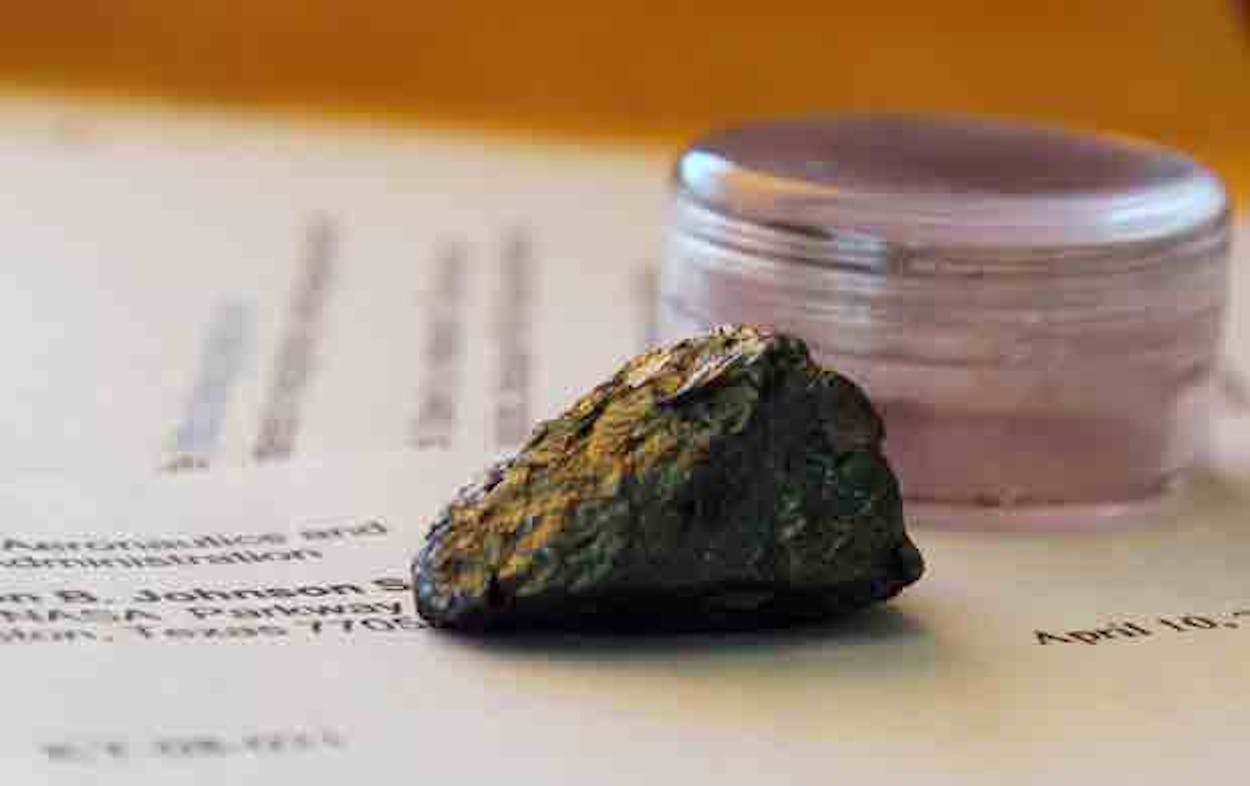“The University of Phoenix has a better track record of recovering moon rocks than NASA does.” Or so says Houston lawyer Joe Gutheinz, who teaches investigative techniques at that school’s Houston campus, as well as criminal justice at Alvin Community College.
Yesterday Michael Graczyk of the Associated Press caught up with Gutheinz, a former senior special agent with NASA’s Office of Inspector General, who has been called “the James Bond of NASA.” He is best known for recovering a rock that had been given to Honduras by placing a “sting” ad in USA Today in 1998. The owner had been asking for $5 million.
As Graczyk explained:
The rock samples were collected by the dozen American astronauts who walked on the lunar surface between 1969 and 1972. U.S. states, territories, the United Nations and foreign governments received them as gifts. The samples, which also were loaned to museums and given to scientists for research, range from dust particles to tiny pebbles …
Of the 270 moon rocks given to nations around the world as gifts, Gutheinz said 160 are unaccounted for, stolen or lost. Another 18 moon rocks from Apollo 11 and six from Apollo 17, gifted to U.S. states, also are unaccounted for or missing.
Gutheinz and students from his classes are responsible for directly or indirectly recovering 79 moon rocks since 2002, including lunar rocks presented to several governors.
Gutheinz wrote his own first-person account of his rock recovery adventures in a March 2011 article for Earth magazine,; he is also the subject of longform Atavist e-book, The Case of the Missing Moon Rocks, by Joe Kloc.
For the AP story, Graczyk joined Gutheinz for a meeting in Buffalo with a 67-year-old Colombian, Rafael Navarro, who was peddling less than .03 grams of purported moon dust, which he’d listed on eBay for $300,000. If the rock is real, a sale would be illegal; if it’s not, it would be fraudulent).
“This is a train wreck waiting to happen for him and he’s inviting it,” Gutheinz said. “He’s opening the jail cell door and walking through it. I wish him well but he’s really defying everybody by doing this.”
Gutheinz’s work is also the subject of a documentary-in-progress by Michigan State professor and filmmaker Troy Hale. Below, a trailer for that film:







